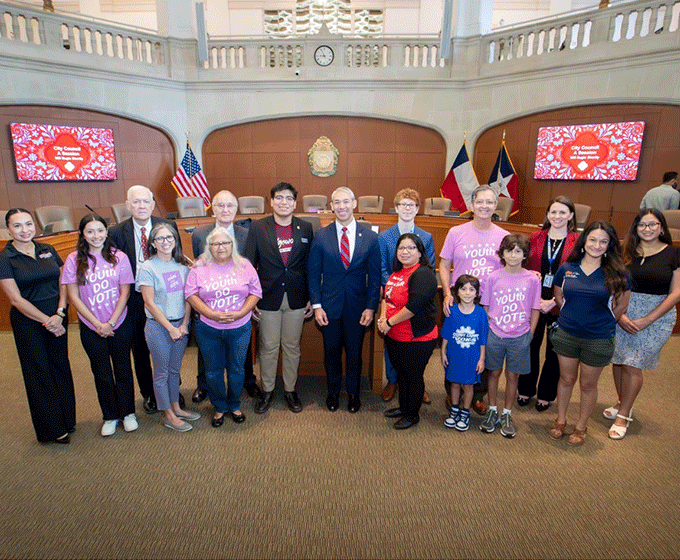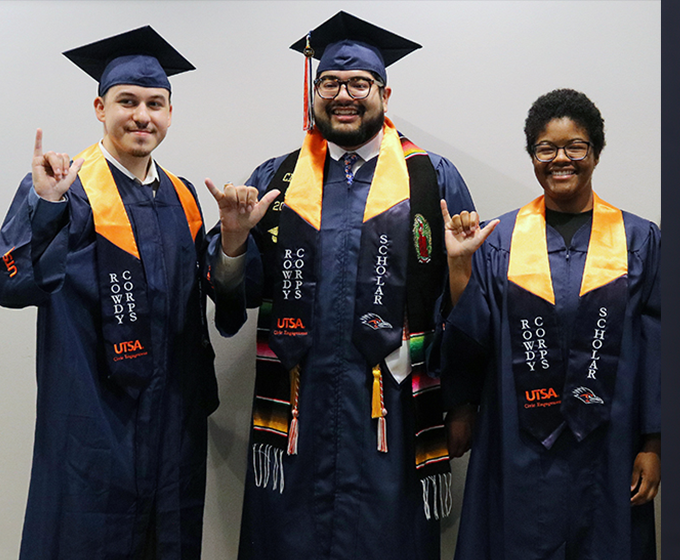UTSA Civic and Community-Engaged Leadership (CCEL)
Preparing socially responsible community leaders
The UTSA Center for Civic and Community-Engaged Leadership empowers students, faculty and staff to engage in reciprocal, community-based experiential learning and scholarship opportunities. Through our community-engaged and civic leadership programs, we are helping Roadrunners develop into leaders who use an inclusive, asset-based approach to making a difference in our communities and contribute to the public good.
Get Engaged

Impact Your Community
Want to get involved in the community? Our UTSAEngaged platform features experiential community-engaged opportunities hosted by over a hundred local nonprofit and public-serving agencies in Bexar County.

Rowdy Corps
Rowdy Corps Community Scholars provides work-study eligible students paid internship opportunities at more than 45 nonprofit and government agencies throughout the city.

Register to Vote!
Want to make sure you're registered to vote and informed about upcoming elections?
Upcoming Events
November 30, 2023
Lorem ipsum dolor sit amet, consetetur sadipscing elitr, sed diam nonumy eirmod tempor invidunt ut.
October 24, 2023
Lorem ipsum dolor sit amet, dora toda elitr, sed.
Lorem ipsum dolor sit amet, consetetur sadipscing elitr, sed diam nonumy eirmod tempor invidunt ut.
November 4, 2023
Lorem ipsum dolor sit amet, dora toda elitr, sed.
Lorem ipsum dolor sit amet, consetetur sadipscing elitr, sed diam nonumy eirmod tempor invidunt ut.
News

Carnegie Community Engagement
Since 2015, UTSA has been recognized by the Carnegie Foundation for its commitment to community engagement.

ALL IN Campus Democracy Foundation
In 2022, UTSA was recognized by the ALL IN Campus Democracy Challenge for making intentional efforts to increase student voter participation.



